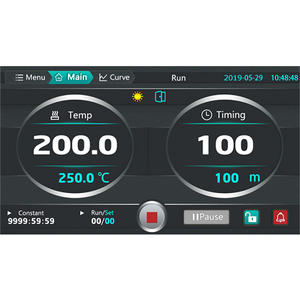The basic principle of industrial air conditioning cooling is actually that the air enters the room during the operation of the air conditioner to generate pressure, which makes the outdoor air wet too much. . Therefore, from the above point of view, the principle of industrial air conditioning cooling is not complicated, easy to understand and master. The fundamentals of cooling an air cooler are not simple. When there is an abnormality in the refrigeration unit, the heat cannot be discharged, and in severe cases, downtime will occur. What is the reason for the decline in the cooling effect of the freezer?

The working principle of the refrigerator is that the refrigerant on the air is compressed from the compressor to a high-temperature and high-pressure gas and enters the condenser. The refrigerant releases heat and condenses into a liquid. After the dryer is dehumidified, the high-pressure liquid refrigerant is reduced to low-pressure wet steam through the charging valve to adjust the throttle, and then enters the evaporator to absorb heat and evaporate into low-pressure gas, and the low-pressure gas enters the compressor to form a cycle.
In principle, the reason that affects the refrigerator is related to the compressor, condenser, expansion valve, and evaporator. In refrigeration equipment, the oil-water separator is also a factor that affects the refrigeration effect.
1. Inflatable valve.
When the freezer is working, the inlet pressure is low and the equipment stops. When the cooling capacity is sufficient, the expansion valve will be blocked or frozen, and when the refrigerant cannot enter the evaporator normally, the inlet pressure will be low and an alarm will be issued. By checking whether there are impurities in the dryer filter, it can be judged whether the expansion valve is faulty. If the expansion valve is not overheated, it will also affect the abnormal response of the machine. For example, adjusting the screw size too small will reduce the refrigerant entering the evaporator, which will reduce the pressure and reduce the cooling effect.
2. Oil separator failure
The role of the oil separator is to separate the lubricating oil and refrigerant that are discharged together. There is a filter on top of the oil separator. The filter is bad, and the oil may not be effective. Through observation, it can be judged whether the refrigerant has lubricating oil, and whether it is caused by a fault.
3. Evaporator leakage blockage fault
The evaporator is a heat exchange component where the low-temperature chilled water enters the chilled water cycle from the evaporator. Leaky or clogged evaporators can lead to insufficient chilled water flow, low compressor inlet pressure, alarm shutdowns, etc. The solution is to find out the leak point through the hydrostatic test and solve the problem.
4. Compressor failure.
For screw compressors, the load adjustment of the compressor adjusts the working volume through the slide valve, and the movement of the slide valve closes the bypass hole. For the spool position, adjusting the spool to zero will return the compressor to normal.
Since there are many reasons why the refrigerator does not refrigerate, you can check the expansion valve, evaporator, oil separator, compressor body slide valve and other influencing factors of the refrigerator to accurately grasp the reasons for the abnormal operation of the refrigerator, eliminate hidden dangers, and ensure the full operation of the device.